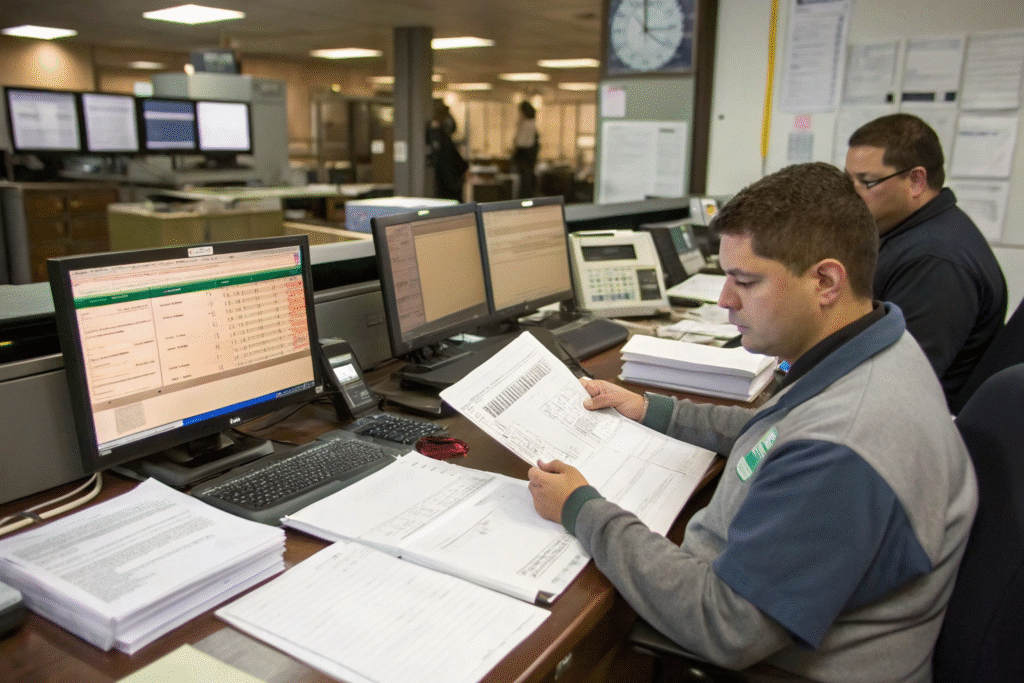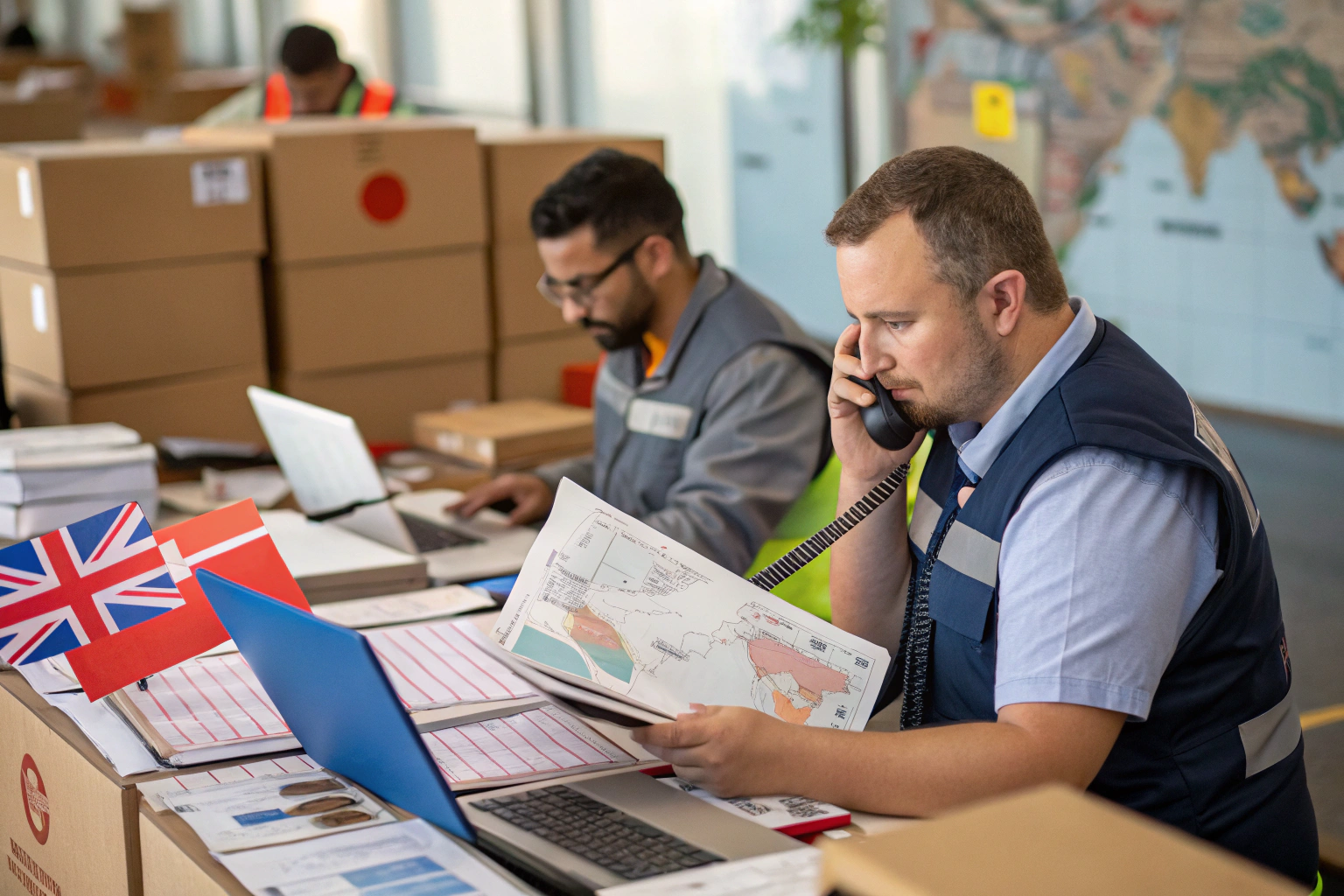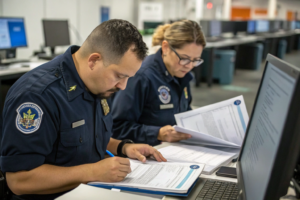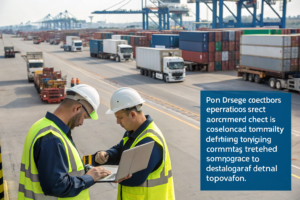When it comes to global trade, one compliance error can turn a profitable shipment into a logistical nightmare. For importers like Ron, who regularly ship goods from China to the U.S., navigating international regulations, customs rules, and documentation requirements can feel overwhelming.
Freight forwarders help simplify trade compliance by managing documentation, ensuring proper classification, tracking regulatory changes, and coordinating with customs authorities across borders.
At GeeseCargo, we've helped hundreds of importers avoid costly penalties, shipment seizures, and delays. Here’s how we do it—and why it matters.
What Compliance Documents Do Freight Forwarders Manage?
Documents are the backbone of trade compliance. If even one is missing or incorrect, customs clearance can stall, or worse—trigger an audit.
Freight forwarders prepare and validate all necessary compliance documents to ensure your shipment moves without friction.

Which Documents Are Most Critical at Customs?
We handle all standard documents including Commercial Invoices, Packing Lists, Bills of Lading, Certificates of Origin, and import/export permits where applicable.
These are compiled, double-checked, and digitally submitted to customs agencies via portals like ACE in the U.S. or China Customs' H2010.
How Do You Prevent Documentation Errors?
We use automated validation tools to cross-check invoice values, HS codes, quantities, and incoterms. Any discrepancies are flagged before the cargo moves. Clients receive previews via Zoho Sign for final approval.
This proactive approach minimizes rejections and ensures proper data entry at every stage.
How Do Forwarders Ensure Accurate Product Classification?
HS codes and tariff classification errors are a major source of customs disputes. Misclassification can lead to fines, delays, or even legal action.
Freight forwarders assist importers in accurately classifying goods using harmonized codes, duty calculators, and customs databases.

What Tools Help with HS Code Identification?
We use official platforms like the Harmonized Tariff Schedule (HTS) in the U.S. and TariffNumber.com to match your product specs with the correct code. We also consult with local customs brokers to double-confirm on complex or sensitive items.
This ensures Ron’s accessories are entered under the proper textile classification, not misfiled under electronics or toys.
Can Forwarders Help Avoid Anti-Dumping Risks?
Yes. We monitor products flagged for anti-dumping and countervailing duties (AD/CVD). If a shipment falls into a restricted category, we alert the client and propose alternatives, including country of origin analysis or substitute codes.
We’ve helped clients reroute certain steel or aluminum components to avoid these hidden costs.
How Do Forwarders Help You Stay Compliant With Trade Regulations?
Trade laws change constantly—especially between the U.S. and China. Staying updated on new tariffs, quotas, and certification requirements is a full-time job.
Freight forwarders actively track regulatory changes and update clients on how evolving laws impact their shipments.

How Do You Stay Current With Trade Laws?
We monitor bulletins from U.S. Customs and Border Protection (CBP), China Customs, WTO, and the Office of the U.S. Trade Representative (USTR). When changes occur, we send email alerts to clients and update their documentation templates immediately.
For example, when the U.S. reinstated tariffs on certain apparel items in 2024, we modified Ron’s import strategy within 24 hours.
Can Forwarders Advise on Restricted Goods?
Yes. We routinely check export control lists and country-specific sanctions. If a product requires a special permit—like lithium batteries or dual-use electronics—we help file EEI (Electronic Export Information) or request clearance from agencies like BIS.
How Do Forwarders Manage Trade Certifications and Audits?
Audits, inspections, and certification reviews are increasingly common, especially for regulated industries. Forwarders can make or break your success.
Freight forwarders assist in certification coordination, record retention, and audit defense by keeping compliance files complete and accessible.

Do You Help With Certification Management?
Yes. We verify and archive all supplier-provided certificates such as GOTS, CE, RoHS, or BSCI. We also connect clients with labs like SGS or Intertek for on-demand product testing.
This helps ensure compliance at customs and in post-market audits.
What Happens During a Compliance Audit?
If U.S. Customs or a trade organization audits your records, we retrieve archived shipping files, correspondence, inspection reports, and certificates within 24 hours. Everything is digitally stored in encrypted Dropbox Business folders with restricted access.
This responsiveness has saved clients from penalties and preserved trading privileges.
Conclusion
Trade compliance is not just about paperwork—it’s about protecting your shipments, your profits, and your reputation. At GeeseCargo, we’ve built our entire freight process around accuracy, transparency, and up-to-date compliance practices.
From document preparation to HS code verification, customs updates to audit support, we help importers like Ron ship smarter—not just faster.
If you’re tired of worrying about forms, penalties, or missed regulations, let us handle the compliance side so you can focus on what matters—growing your business globally.









